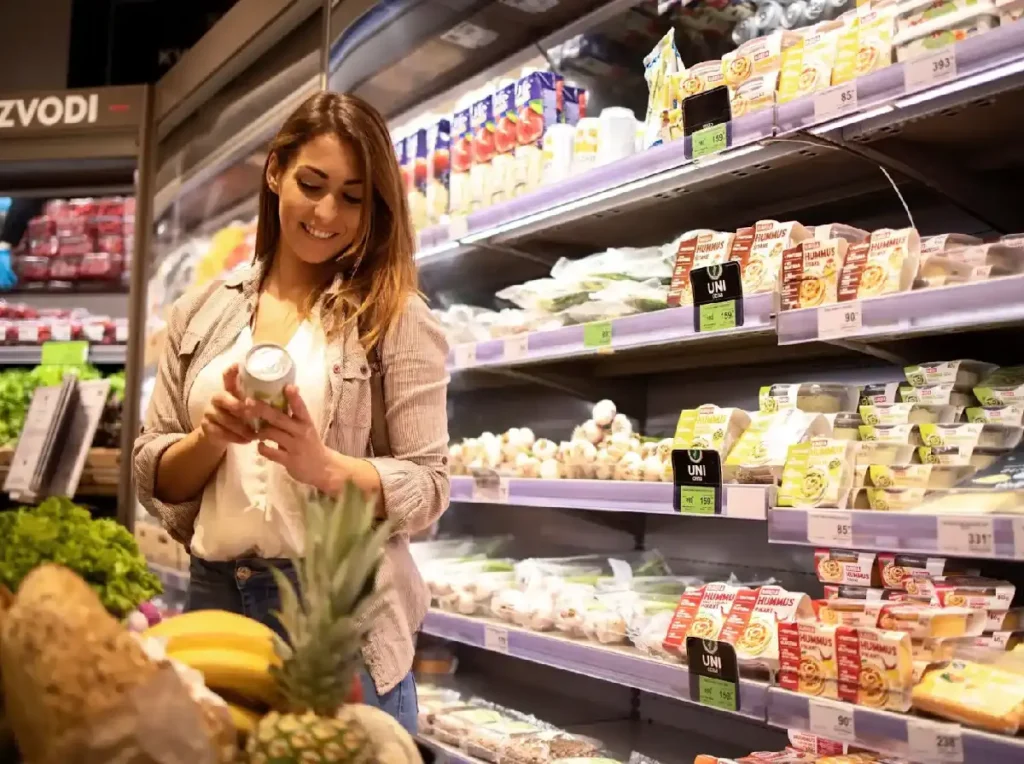
Entering the Spanish fast-moving consumer goods (FMCG) market presents a significant opportunity for international brands. With its size, diversity, and openness to innovation, Spain is a compelling destination — but one that comes with its own unique set of challenges.
At Hola Spanish Market, we’ve seen firsthand what it takes for brands to succeed in Spain. Here are the top challenges to be aware of — and how to turn them into opportunities:
One of the biggest hurdles for international brands is standing out in a market where private labels (MDD) and local brands have a strong presence. According to NIQ’s 2023 Retail Spending Barometer, private labels account for 48% of FMCG spending in Spain — especially in categories like household cleaning (60%) and food (52%).
This makes it essential for international brands to offer a clearly differentiated value — whether through quality, innovation, sustainability, or branding. In such a price-sensitive market, differentiation is key to capturing consumer attention and loyalty.
The good news? With a compelling and relevant value proposition, foreign brands can break through. At Hola Spanish Market, this is exactly what we help our clients achieve.
Spanish consumers have shown remarkable adaptability in recent years. Despite inflation, international uncertainty, and evolving habits, household consumption in Spain has remained strong — though shoppers are increasingly cost-conscious.
According to NIQ’s 2023 Consumer Trends report, 93% of Spanish consumers have changed their shopping behavior to better manage their budgets. Common strategies include opting for private labels (41%), monitoring total basket cost (40%), taking advantage of promotions (38%), and choosing the cheapest items from their regular list (33%).
This shifting behavior demands flexibility from foreign brands. Commercial and marketing strategies must adapt to new priorities — often on a regional basis. Local insight and targeted analysis are crucial for success.
At Hola Spanish Market, we support brands in navigating these dynamics — helping them adjust strategies quickly and connect meaningfully with diverse consumer profiles across Spain.
Compliance with Spanish and EU regulations is non-negotiable. Regulatory bodies such as AESAN (Spanish Agency for Food Safety and Nutrition) oversee rules related to labeling, ingredients, and food safety, while cosmetic products fall under Regulation (EC) No. 1223/2009.
Overlooking these regulations can result in penalties, product recalls, or reputational damage. Working with local experts or specialized consultants is essential to ensure compliance from day one.
Want to stay ahead of Spanish and EU regulations? You’re in the right place. At Hola Spanish Market, we’re experts in this field. Check out our full legal guide here: Legal Requirements for FMCG Brands in Spain
Getting your product into major Spanish retail channels is no easy feat. Market leaders like Mercadona (27.6% share), Carrefour (7.5%), and Lidl (6.1%) dominate the landscape, according to NIQ (2023).
To break through, international brands need to forge strategic partnerships with distributors, wholesalers, and horeca (hotel, restaurant, and café) players. These collaborations are key not only to securing shelf space but also to understanding consumers and optimizing local operations.
To tackle this challenge, we guide brands every step of the way — from identifying the right partners and negotiating with distributors, to designing go-to-market strategies tailored to the Spanish consumer. Our local expertise and trusted network help open doors, accelerate market entry, and build sustainable, long-term partnerships.
Spanish consumers are increasingly driven by sustainability and social impact. According to a 2023 Oney study, 89% of Spaniards are familiar with the idea of responsible consumption, and 93% actively try to incorporate it into their daily lives. What’s more, 70% buy recycled or reused products, and 90% prioritize locally produced goods.
For international brands, offering a good product is no longer enough. It’s essential to develop communication strategies that feel authentic and reflect a genuine commitment to sustainability. These values should be integrated across all business areas — from product development to brand storytelling — to show that your contribution to the Spanish market goes beyond profit.
Need help with this? Contact us! We help international brands identify the values that resonate most with Spanish consumers and build an authentic narrative around purpose and sustainability. We don’t just help you communicate it — we help you turn it into a real competitive edge.
Spain is an attractive but demanding market. The key to success lies in turning challenges into strategic opportunities.
Foreign brands must adapt to informed consumers, compete with well-established local players, meet stringent regulatory standards, and build solid partnerships within the commercial ecosystem. With a strong strategy and a deep understanding of the local landscape, you can not only overcome these challenges — but thrive in Spain for the long run.
Want your brand to succeed in Spain?
At Hola Spanish Market, we’re here to help you transform challenges into growth. Let’s talk strategy!